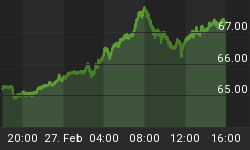Last week supporters of Federal Reserve transparency had a major victory when the House Committee on Government Oversight and Reform passed my Audit the Fed bill, HR 459 unanimously with all major audit provisions intact. This clears the way for a House floor vote expected sometime in late July, and with a whopping 263 cosponsors, the chances of it passing have never looked better! This is an unprecedented opportunity for transparency into how the currency of the United States is handled, and mishandled by the Federal Reserve. It is more important than ever that my colleagues in the House and Senate understand what this legislation does and why it is so important.
The Federal Reserve is an enormously destructive and unaccountable force in both the U.S. economy and the greater global economy. Federal Reserve policies affect average Americans far more than fiscal, spending, and tax policies legislated by Congress; indeed the Fed "spends" more than Congress when it creates trillions of new dollars on its balance sheet to bail out favored financial institutions.
For several decades the Fed has relentlessly increased the supply of U.S. dollars (both real and electronic) and kept interest rates artificially low. These monetary policies punish thrift, erode the value of savings, and harm older Americans living on fixed incomes and the poor. The Fed's expansion of the money supply, combined with artificially low interest rates, creates destructive cycles of malinvestment. This results in housing, stock market, and employment booms and busts that destroy lives.
While the Fed was created by Congress, current law prohibits Congress from fully auditing the Fed's monetary policy - the Fed actions that impact Americans the most. The Fed's financial statements are audited annually, but the Fed's monetary policy operations are exempt from audit. Congress' investigative arm, the Government Accountability Office (GAO), currently is prohibited by law from examining discount window and open market operations; agreements with foreign governments and central banks; and Federal Open Market Committee (FOMC) directives. It is precisely this information that should be made public.
The audit mandated in the Dodd-Frank Act focused solely on emergency credit programs, and only on procedural issues rather than focusing on the substantive details of the lending transactions. Most of the data on its other activities, such as open market operations and discount window lending, have only been published as a result of lawsuits--not because of Congressional action. Dodd-Frank requires this information to be disclosed going forward, but with a two year time lag and with GAO restricted to auditing only the procedural components of any programs. H.R. 459 grants GAO and Congress access without special exemptions and ensures that ALL of the Fed's lending actions will be subject to oversight.
Also, given the Fed's establishment of dollar swap agreements with foreign central banks (which lent up to $600 billion at a time in 2008), and the increasing economic uncertainty surrounding Spain, Greece and the European Union, the Fed's continued financial assistance to Europe should not be exempt from public accountability and Congressional oversight. H.R. 459 brings transparency to the Fed's agreements with the European Central Bank and other foreign entities.
H.R. 459 does not limit the focus of the audit, making a full audit finally possible. An entity that controls the value and purchasing power of the dollar should not be permitted to operate in the dark without oversight by Congress and accountability to the people. The Fed needs transparency and H.R. 459 would provide it. We now have this opportunity to ensure solid passage of HR 459 on the House floor, then the Senate floor and have it promptly signed into law.















